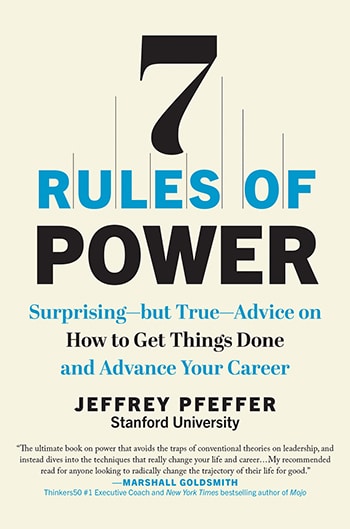Most leadership advice says the same thing: to be a good leader, you need to be generous, humble, and authentic. My guest, professor of organizational behavior Jeffrey Pfeffer, would say that kind of advice may make us feel good and represent the world as we'd like it to be, but it doesn't actually work in the world as it really is. What the research shows does work is what he lays out in his book: 7 Rules of Power: Surprising-—But True—Advice on How to Get Things Done and Advance Your Career.
Most leadership advice says the same thing: to be a good leader, you need to be generous, humble, and authentic.
My guest, professor of organizational behavior Jeffrey Pfeffer, would say that kind of advice may make us feel good and represent the world as we'd like it to be, but it doesn't actually work in the world as it really is. What the research shows does work is what he lays out in his book: 7 Rules of Power: Surprising-—But True—Advice on How to Get Things Done and Advance Your Career.
People often have negative associations with power, but Jeffrey would argue that power, and many of the techniques involved in getting it, are morally neutral, and can be used for ill or for good. So if you have a worthy aim and want to grow your influence and move up in your job, you have to get comfortable going after something that may make you uncomfortable. Jeffrey shares how to do that as we take a quick and dirty dive into the real rules of power.
